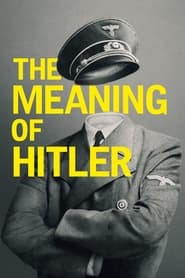Saul Friedländer (Hebrew: שאול פרידלנדר; born October 11, 1932) is a Czech-Jewish-born historian and a professor emeritus of history at UCLA.
Saul Friedländer was born in Prague to a family of German-speaking Jews. He was raised in France and lived through the German Occupation of 1940–1944. From 1942 until 1946, Friedländer was hidden in a Catholic boarding school in Montluçon, near Vichy. While in hiding, he converted to Roman Catholicism and later began preparing for the Catholic priesthood. His parents attempted to flee to Switzerland, were arrested instead by Vichy French gendarmes, turned over to the Germans and were gassed at the Auschwitz concentration camp. Not until 1946 did Friedländer learn the fate of his parents.
After 1946, Friedländer grew more conscious of his Jewish identity and became a Zionist. In 1948, Friedländer immigrated to Israel on the Irgun ship Altalena. After finishing high school, he served in the Israel Defense Forces. From 1953 to 1955, he studied political science in Paris.
Friedländer served as secretary to Nachum Goldman, then President of the World Zionist Organization and the World Jewish Congress. In 1959, he became an assistant to Shimon Peres, then vice-minister of defense. Late in the 1980s, Friedländer moved to the political left and was active in the Peace Now group.
In 1963, he received his PhD from the Graduate Institute of International Studies in Geneva, where he taught until 1988. Friedländer taught at the Hebrew University of Jerusalem and at Tel Aviv University. In 1969 he wrote a biography of repentant SS officer Kurt Gerstein. In 1988, he became Professor of History at the University of California, Los Angeles.
In 1998, Friedländer chaired the Independent Historical Commission (IHC) that was appointed to investigate the activities of the German media company Bertelsmann under the Third Reich. The 800-page report, Bertelsmann im Dritten Reich, written with Norbert Frei, Trutz Rendtorff and Reinhard Wittmann, was published in October 2002. It confirmed the findings, first reported by Hersch Fischler in The Nation, that Bertelsmann collaborated with the Nazi regime before and during World War II. Bertelsmann subsequently expressed regret "for its conduct under the Nazis, and for later efforts to cover it up".
Source: Article "Saul Friedländer" from Wikipedia in English, licensed under CC-BY-SA 3.0.
Saul Friedländer was born in Prague to a family of German-speaking Jews. He was raised in France and lived through the German Occupation of 1940–1944. From 1942 until 1946, Friedländer was hidden in a Catholic boarding school in Montluçon, near Vichy. While in hiding, he converted to Roman Catholicism and later began preparing for the Catholic priesthood. His parents attempted to flee to Switzerland, were arrested instead by Vichy French gendarmes, turned over to the Germans and were gassed at the Auschwitz concentration camp. Not until 1946 did Friedländer learn the fate of his parents.
After 1946, Friedländer grew more conscious of his Jewish identity and became a Zionist. In 1948, Friedländer immigrated to Israel on the Irgun ship Altalena. After finishing high school, he served in the Israel Defense Forces. From 1953 to 1955, he studied political science in Paris.
Friedländer served as secretary to Nachum Goldman, then President of the World Zionist Organization and the World Jewish Congress. In 1959, he became an assistant to Shimon Peres, then vice-minister of defense. Late in the 1980s, Friedländer moved to the political left and was active in the Peace Now group.
In 1963, he received his PhD from the Graduate Institute of International Studies in Geneva, where he taught until 1988. Friedländer taught at the Hebrew University of Jerusalem and at Tel Aviv University. In 1969 he wrote a biography of repentant SS officer Kurt Gerstein. In 1988, he became Professor of History at the University of California, Los Angeles.
In 1998, Friedländer chaired the Independent Historical Commission (IHC) that was appointed to investigate the activities of the German media company Bertelsmann under the Third Reich. The 800-page report, Bertelsmann im Dritten Reich, written with Norbert Frei, Trutz Rendtorff and Reinhard Wittmann, was published in October 2002. It confirmed the findings, first reported by Hersch Fischler in The Nation, that Bertelsmann collaborated with the Nazi regime before and during World War II. Bertelsmann subsequently expressed regret "for its conduct under the Nazis, and for later efforts to cover it up".
Source: Article "Saul Friedländer" from Wikipedia in English, licensed under CC-BY-SA 3.0.
Show more expand_more
keyboard_double_arrow_down

